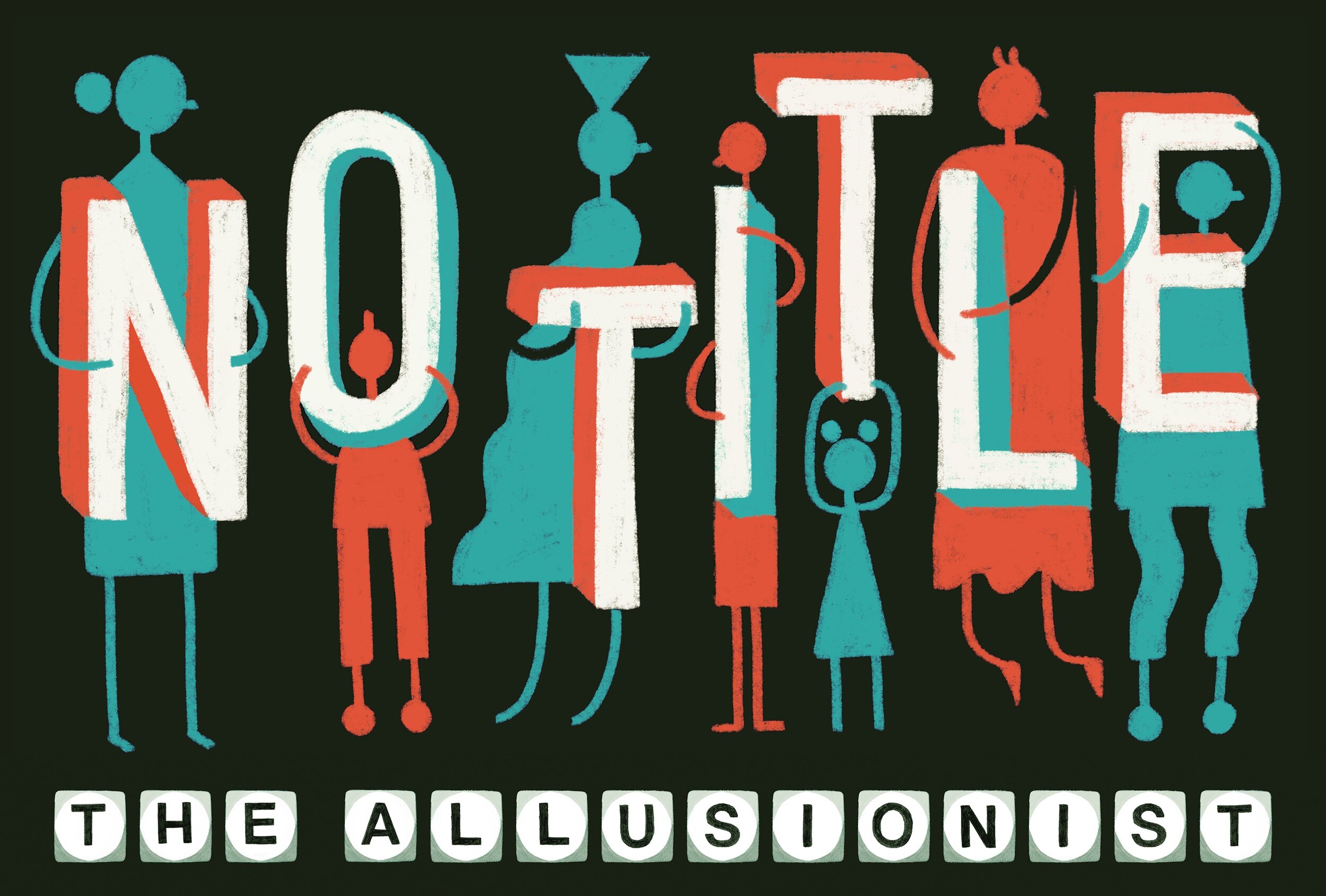Since 2019, Marwan Kaabour has been collecting Arabic slang words used by and about queer people, first for the online community Takweer, and now the newly published Queer Arab Glossary. "When researching for this book, I discovered so much of the sociopolitical, cultural, linguistic, and historical layers that make up the words," he says. He also discovered quite a lot about frying, white beans and worms (metaphorical ones).
Read moreAllusionist 174. Eurovision part 1
There aren't many multilingual, multinational television shows that have been running for nearly seven decades. But what makes the Eurovision Song Contest so special to me is not the music, or the dancing, or the costumes that range from spangletastic to tear-off: no, it's the people butting heads about language. Historian Dean Vuletic, author of Postwar Europe and the Eurovision Song Contest, recounts the many changes in Eurovision's language rules, and its language hopes and dreams.
Read moreAllusionist 158. Creature Quiz!
There's lots of fun etymology of creatures and a lot of fun etymology derived from creatures, and now it is gathered into this fun playalong quiz about animal etymologies!
Read moreAllusionist 142. Zero
Allusionist 141. Food Quiz
Quiz time! Samin Nosrat and Hrishikesh Hirway of Home Cooking podcast join to deliver questions about food etymology, as well as what are the two words that make a dance track, and whether 'za' is an acceptable abbreviation for 'pizza'.
Play along and keep track of your score using the interactive scoresheet further down this post.
Read moreAllusionist 121. No Title
In 2014, a seemingly trivial and boring incident at the bank propelled me down a linguistic road via medieval werewolves, Ms Marvel and confusingly inscribed gravestones, to find out why the English language is riddled with all this gender. What’s it FOR? How did it GET there? Will it go AWAY now please? It is, at the very least, taking up brainspace and not paying any rent.
This is a recording of a live performance at the Blueberry Hill Duck Room in St Louis, Missouri on 23 November 2019, and there were visuals happening, so I’ll drop in sometimes to explain them, and I’ve also put a transcript and pictures in this post.
There are swears in this. There are also arguments that will be very useful to you if you ever come up against a denier of singular they. You will definitely win.
Read moreAllusionist 99. Polari
When there were no safe spaces to be gay, Polari allowed gay men to identify and communicate with each other, and to keep things secret from outsiders.
Professor Paul Baker, author of the Polari dictionary and the upcoming book Fabulosa! The Story of Polari, Britain’s Secret Gay Language, explains how Polari emerged from criminal cant and London’s theatres and docks to be used a code language for gay men in the oppressive 1950s - and then, not long after, it entered the slang lexicons of the general public, via popular sketch comedy and the mouth of an annoyed princess.
Read moreAllusionist 81. Shark Week
What is the expression 'beyond the pale' on about? How do you express the absence of feeling? Does 'testify' have anything to do with testicles? Do avocados have anything to do with testicles? How does the phrase "It's all Greek to me" relate to food styling? Can you have a caper with capers? Are sharks misunderstood, etymologically and morally? And finally: where do allusions come from?
Read moreAllusionist 17: Fix part I
iTUNES • RSS • MP3
The English language is a mess. And if you don't like it, what are you going to do about it - fix it? Good luck with that.
In the early 18th century, a movement of grammarians and authors wanted to set up an official authority to regulate English, like French had in the Academie Francaise. But is trying to fix a language a good move? Linguists Liv Walsh and Thomas Godard weigh up the evidence.
Apologies in advance, pedants: this episode may contain some truths you* don't want to hear.
*we.
READING MATTER:
Some of the audio is a bit unclear, so here's a transcript of the show.
Find out about the Academie Francaise, including what you'll need to do if you want to become one of Les Immortels. (You'll probably have to kill one of the current ones.)
Here is Jonathan Swift’s language proposal and here is his Modest Proposal.
This article summarises how most linguistic rules are just busking it; it also links to a 1909 paper about the subject that doesn't mess around.
Thomas Godard recommends reading Fixing English by Anne Curzan and The Bishop's Grammar by Ingrid Tieken-Boon van Ostade, and listening to PRI's The World in Words.
The purists among you may wish to seek refuge with the Queen's English Society.
RANDOMLY SELECTED WORD FROM THE DICTIONARY:
toxophilite
CREDITS:
Thanks very much to Dr Liv Walsh and Thomas Godard, and to Dr Rachele De Felice who helped me find them.
This episode was produced by me, Helen Zaltzman. All the music is by Martin Austwick. Hear and/or download more - WITH LYRICS! - at thesoundoftheladies.bandcamp.com.
Say hello to me at facebook.com/allusionistshow, twitter.com/allusionistshow and twitter.com/helenzaltzman.










